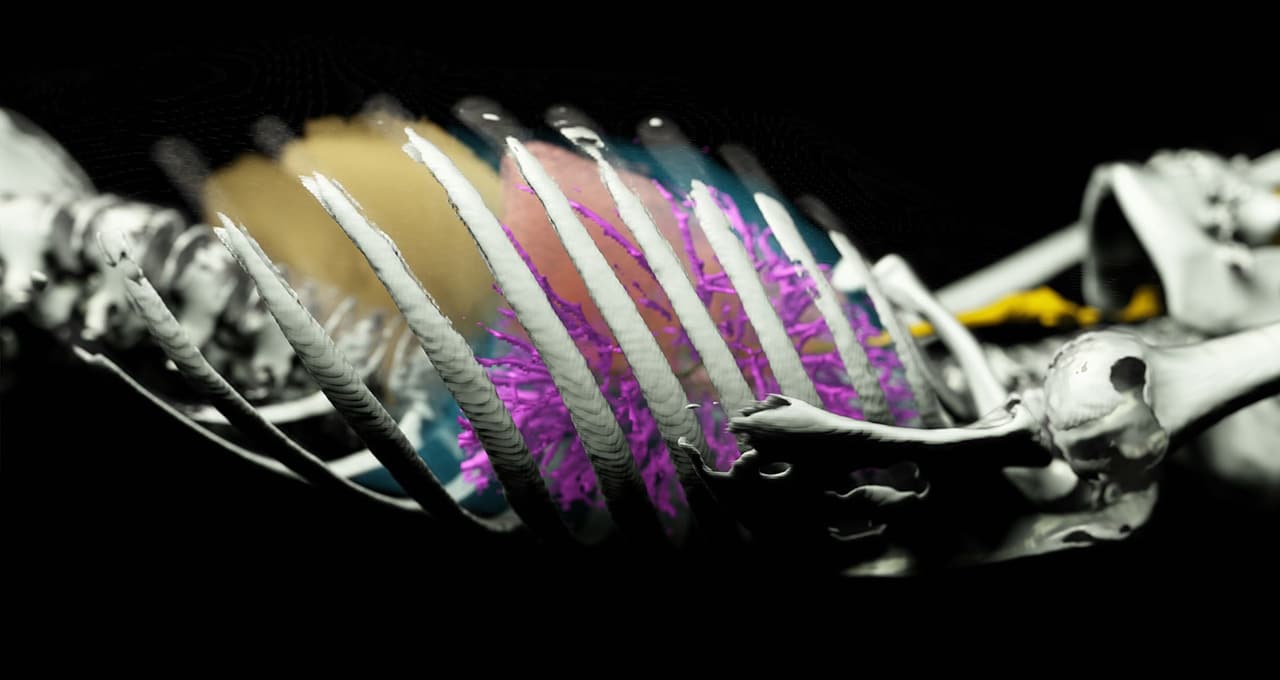The pairing of AI and healthcare is under the microscope at GTC Digital, where a free library of live and on-demand healthcare talks, research posters, workshops, training sessions and office hours awaits anyone interested in the future of medicine.
The virtual GPU Technology Conference is where innovators will share how AI and GPUs empower doctors and medical institutions. A who’s who of healthcare and medical researchers are presenting how deep learning applications can be used in every aspect of healthcare.
Scores of on-demand talks, as well as hands-on training sessions from the NVIDIA Deep Learning Institute (available for a nominal fee), focus on AI in medical imaging, genomics, microscopy and more.
As developers build groundbreaking AI tools for healthcare applications, they must collaborate with physicians and policymakers to integrate their solutions into the medical workflow. In one GTC Digital session, featured speaker Geraldine McGinty, chief strategy and contracting officer of Weill Cornell Medicine, will discuss the ways AI impacts her radiology practice today — and how it could do so in the future.
GTC Digital is packed with dozens more healthcare talks in the fields of computational chemistry, genomics, medical imaging, microscopy and pathology — with additional content coming every Thursday for the coming weeks. Here are some sessions not to miss:
- Accelerating Cancer Research: VDI by Day, Compute by Night: Learn how one of the world’s top comprehensive cancer centers, Netherlands Cancer Institute – Antoni van Leeuwenhoek Hospital, is using virtual desktop infrastructure to accelerate research and enhance efficiency for clinicians.
- De Novo Protein Design of Epitope-Directed Inhibitors: Find out how a GPU-accelerated computational pipeline is enabling protein drug design in this talk by Mohammad ElGamacy, postdoctoral research fellow at the Friedrich Miescher Laboratory of the Max Planck Society.
- GPU-Accelerated Next-Generation Sequencing Bioinformatic Pipeline: Margaret Linan, computational research scientist at Icahn School of Medicine at Mount Sinai, will share how NVIDIA GPUs can be used to accelerate bioinformatic analyses.
- High-Throughput Cryo-Electron Microscopy and Cryo-Electron Tomography Powered by GPU at the University of California, San Francisco: Bioinformatics specialist Shawn Zheng will share how UCSF uses NVIDIA GPU technology to solve critical challenges in CryoEM and CryoET.
- Making Radiology AI Models More Robust: Federated Learning and Other Approaches: Stanford professor Daniel Rubin will discuss how federated learning can be used to tackle training data quality challenges to build AI models for medical imaging.
Train Up on Medical Imaging
Join full-day or two-hour Deep Learning Institute sessions for instructor-led AI training. Participants can interact in real time with the presenters. The following two-hour training sessions focus on AI and medical imaging. Each costs $39; early registration is recommended.
- Coarse-to-Fine Contextual Memory for Medical Imaging: Take a deep dive into encoder-decoder architectures for medical image segmentation. Tuesday, April 2.
- 3D Segmentation for Medical Imaging with V-Net: Learn how to use the V-Net architecture to segment 3D images, using an example dataset of prostate scans. Wednesday, April 8.
- Data Augmentation and Segmentation with Generative Networks for Medical Imaging: See how generative adversarial networks, or GANs, can be used to generate synthetic brain MRIs for data augmentation — and to segment brain scans. Thursday, April 8.
Read Up on the Latest with Research Posters
GTC Digital attendees can also browse through around 150 posters from healthcare researchers around the world. Two dozen focus on healthcare and sciences, including:
- MolecularRNN: Generating Realistic Molecular Graphs with Optimized Properties: Mariya Popova, Carnegie Mellon University
- Data-Driven Approach of Coronary Vessel Reconstruction Using X-Ray Angiography: Kritika Iyer, University of Michigan
- Fully Automated Blood Analyzer Driving Early Detection for Leukemia Based on Cytomorphology: Jie Wang, Shanghai Jiao Tong University
- Generating Microscopic Phase Images with Deep Learning: Abdul Al-Haimi, PerkinElmer
- Manipulating the StyleGAN Latent-Space: H&E Image Synthesis for Prostate Cancer Research: Gagan Daroach, Milwaukee School of Engineering
Check out all the healthcare offerings at GTC, and register for free.
